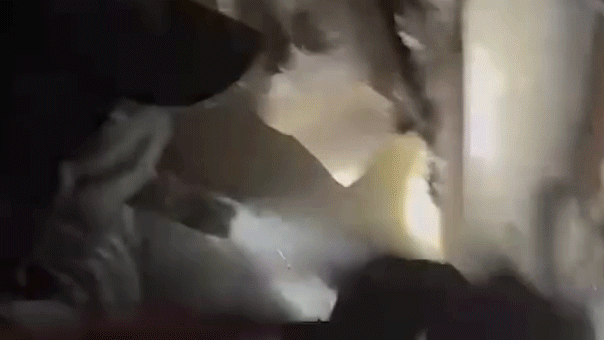Far-left riots erupt in Seattle, Portland on inauguration day
FOX News chief breaking news correspondent Trace Gallagher joins' Hannity' with the latest.
Antifa rioters marched through downtown Seattle Wednesday in protest of President Joe Biden's inauguration, breaking windows at a courthouse and multiple businesses along the way, including the original Starbucks.
Three people were arrested on charges ranging from property damage to felony assault in the aftermath, but one of the demonstrators dismissed the significance of property destruction, telling KOMO that she doesn't "think you can be violent against a window."
"Direct action is beyond the picket signs in the streets," she told the local news outlet. "It's taking that a step further (and) it's willing to be confrontational, if needed."
PSAKI SAYS SHE HASN'T SPOKEN WITH BIDEN ABOUT RIOTS IN SEATTLE, PORTLAND
Seattle police said that the demonstrators, who used umbrellas to conceal each other as they vandalized property, were mostly dressed in black.
"The reason people dress in black bloc is not to be scary," the Antifa militant told KOMO. "If we are all (dressed) similar, then we are safer together. And people have legitimately had death threats made against them and threats against their family."
Vandalism, looting, arson, and other destructive activities have been a hallmark of the unrest that sometimes evolves out of peaceful protests. The left and the right have been at odds over how these acts should be perceived for decades, but that debate reached a fever pitch during protests in the wake of George Floyd's death last summer.
SEATTLE ANTIFA RIOTERS DAMAGE FIRST STARBUCKS IN BIDEN PROTEST
For instance, R.H. Lossin, a teacher at the The Brooklyn Institute for Social Research, wrote in The Nation, a progressive magazine, that it's a false equivalency to conflate violence against people with property damage.
"Plateglass windows don’t bleed," Lossin wrote last June. "They don’t die and leave loved ones grieving. They don’t contribute to the collective trauma and terror experienced by their communities. They just break, and then, at some point, they are replaced by identical sheets of glass."
On the other side, National Review editor Rich Lowry wrote in Politico that the "blasé attitude about the destruction of property doesn’t pass the common-sense test."
CLICK HERE TO GET THE FOX NEWS APP
"Property is not an abstraction," Lowry wrote last June. "It gives people shelter, and a sense of protection and stability. People pour themselves into their property, using their earnings to pay for it, improving it, becoming identified with it. If the property is a business, it often represents years of blood, sweat, tears and dreams."
"For someone to come and destroy it in a spasm of rage or gleeful looting, is felt as a profound violation, and understandably so."









































